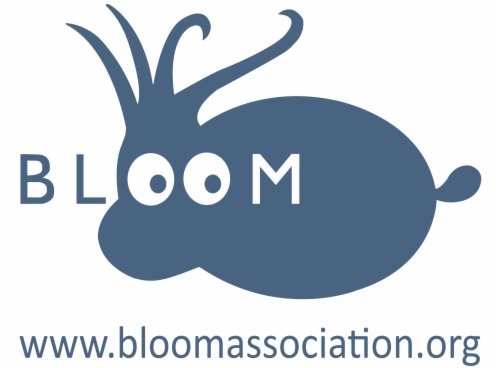Hong Kong
Bloom Association (BA) was founded in 2005 by the French environmental journalist Claire Nouvian to, in Bloom’s words, ‘create a collective conscience to tip public opinion in favour of the protection of the deep sea’. BA believes that ‘emotion is the indispensable preamble to oceanic protection’. And BA says it exists ‘to reconnect adults and children everywhere with nature’.
Bloom Association focuses on three core issues: preserving the deep sea; safeguarding endangered species (particularly sharks); ensuring the survival of fishers through, in its words, ‘work on the issue of public subsidies to the fishing sector’.
In Hong Kong, BA directs its energy at changing the behaviour of the hospitality sector which serves Shark fin soup and sea cucumbers on banquet tables in restaurants and hotels, mostly to wealthy consumers or to ordinary people celebrating anniversaries or weddings. To this end in 2009, Bloom and WWF both received funds from ADM Capital Foundation to, in their words, ‘support detailed research into the toxicology of shark fins as well as their consumption, cultural attitudes and overall trade in Hong Kong’.
Bloom Association also claims to take a close interest in the enforcement of CITES’ regulations. For example at Cop-18 in 2019, BA supported all proposals to list mako sharks, giant guitarfishes, Wedgefishes, and sea cucumbers (served as dry sea-food delicacy in Hong Kong).
Moreover, BA proactively lobbies both the EU and WTO to end all subsidies that support ‘the construction of fishing vessels and the modernisation of fishing fleets’. It believes that by ending subsidies, the fishing industry will ‘improve capacity and efficiency’. Bloom claims among its major achievements, ‘securing the total ban of deep-sea bottom trawling below 800 m. of depth in the whole of Europe’, in collaboration with the Deep Sea Conservation Coalition and The Pew Charitable Trusts.
Leadership
Sabine Rosse, director, a marketing and communications expert based in Hong Kong.
Governance
Founder and Board Chair of BLOOM, Claire Nouvian.
Finances
According to its website, BLOOM’s operational budget in 2018 was Euro 719 108, of which the Oak Foundation based in Geneva donated Euro 127,487.


